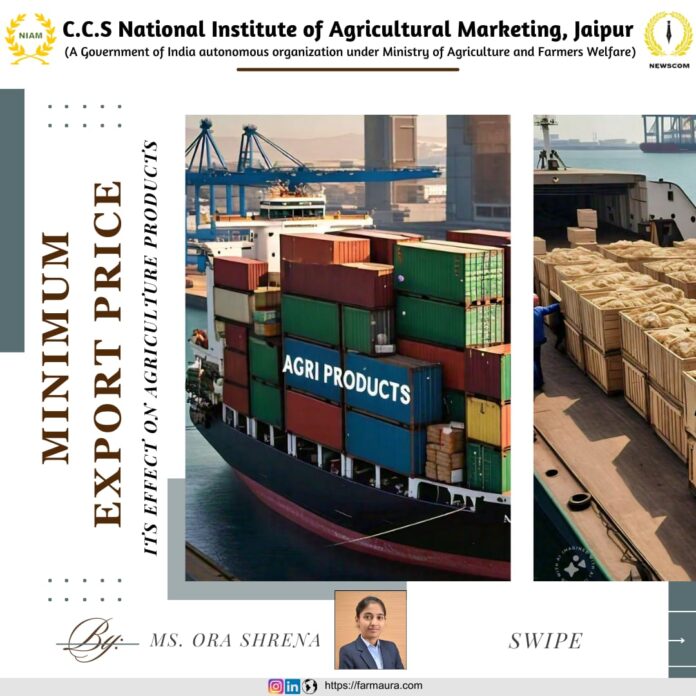A Minimum Export Price, or MEP, is a policy tool used by governments in fixing the minimum price at which certain commodities are expected to be sold for export. It guards the home market from the price swings but ensures the supply of vital products. MEPs are normally employed to minimize the risks of risk-seeking domestic price volatility, food shortages, and inadequate supplies of commodities. It is a form of quantitative restriction to trade.
Implementation of MEPs
MEP caps as an instrument have been used by the DGFT under its authority bestowed upon it under section 5 of the Foreign Trade (Development & Regulation) Act, 1992, on basmati rice in FY11 to curb exports but is typically done to rein in runaway domestic prices on account of disruption in production.
Governments decide on what kind of crops they feel are essential for local consumption or would be vulnerable to changes in the price. Then, based on the production cost of the crop in the nation, market trend, and international standards, MEP is decided. Strict action is taken by the governments to enforce the MEP; they would have to receive an export license, customs inspections strictly meticulous, and fines and penalties against the defaulting.
MEP impact analysis.
Least Export Prices, or MEP, earns higher export revenue because prices are usually higher abroad. This therefore results in higher incomes for farmers. But if the MEP is too high, this will then reduce export volume and thereby lessen competitiveness in world markets. Locally, MEP is used for stabilization of internal prices, thus providing sufficient supply at the regulated export level.
MEP provides farm income stability and market certainty to be sustained in the near term and encourages farmers to have a better sense about their production plans, but this is liable to set off trade spats or retaliatory measures by importing countries that may hinder access to markets.While the MEP promotes quality and innovation improvement, it distorts event flows in markets leading to inefficiencies and maintaining illegal practices, including smuggling, since producers would want to find ways to circumvent export restrictions.
Economic Effects of MEPs on Exporters and Global Agricultural Trade
MEP policies, in 2023 saw the scaling up of agricultural incomes in India and Thailand. The increase in income among onion farmers by 18% in India came following the realization of 5% growth in export value driven by declines in volume. The income of rice farmers in Thailand went up with the farm-gate prices increasing by 10%. This translated to a record 15% growth realized in rice export earnings amounting to $4.7 billion. This makes such policies a good way to scale up farmer incomes and export values even as volumes decline in exports.
MEP policies rewrote the agricultural markets in 2023. India’s share in the global onion market fell to 31% from 36% as Egypt and Turkey gained 2% and 1%, respectively. Global rice prices increased by 7.2% largely on account of MEP policies implemented in Thailand and India. MEPs on onions in India became so influential that it reflected even in global vegetable prices. Further information from the FAO Food Price Index reveals that it rose by 3.5 percent after the implementation of MEP.
The Way Forward
A spate of measures initiated by the Indian government, all having the effect of supporting the farmer and protecting home markets. Fixation of a minimum export price of $1250 per MT in August 2023 for basmati rice exports and lowering to $950 per MT, allowing exports on the basis of a MEP of $550 per ton on onions and increasing import duties on edible oils to 32.5% as against 35.75% already prevailing in the case of refined oils. These amendments have brought about the stimulation of exports, ensuring that the farmer achieves an adequate income for his product, and encouraging agricultural production within a country. The Minimum Export Price has produced very far-reaching, multi-dimensional impacts on agricultural commodities. Although MEP has indeed altered market share and introduced a degree of volatility into international prices, it has also concurrently created incomes for farmers in export countries simultaneously with assisting in smoothing domestic prices The key challenge for nations that use MEP as an instrument of policy will be reconciling national interests with obligations toward the international trading community.




